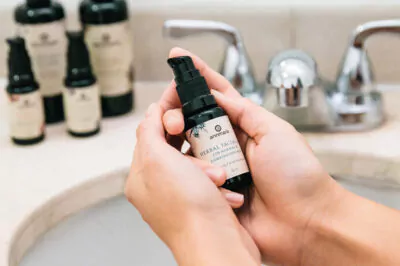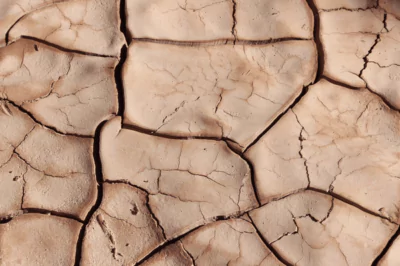When skin woes hit, we often head straight to the medicine cabinet. Then 50 lotions and potions later, the problems are still there, or they’re even worse!
External skin care is extremely important. I mean, it’s kind of our thing. But lifestyle factors that affect our skin are very real. We all have our vices, but if you take a look at some of your habits, you may find some ways that you’re preventing yourself from achieving that glowing skin that you crave.
Here are a few common lifestyle factors that can affect our skin—some negatively, some positively.
Too Much Alcohol Can Age Your Skin
Alcohol is one of the most socially accepted beverages there is. It’s so prevalent in today’s culture that the majority of drinkers do not know how harmful alcohol can actually be for our health and skin.
Have you ever woken up after a night of drinking and noticed your skin’s appearance? It shows more fine lines, signs of dehydration and even swelling. Studies have shown that one in six adults binge drink at least four times per month, drinking on average eight drinks each time.
If you’re binge drinking along these lines, your skin will start to age more rapidly than the skin of someone who partakes in occasional drinking. This does not mean you have to give alcohol the official “boot,” but monitoring your drinking consumption is recommended for keeping your skin clear, hydrated, supple, and wrinkle free.
If you are one who imbibes in the occasional drink, you may be asking, “Which alcoholic beverages are the least harmful?” Great question!
Stick to clear spirits on the rocks or in a shot. Less is more and we know this option has no added sugar, salt, or syrup — a cocktail recipe for disaster. Also, red wine is considered a healthy alcohol when consumed in moderation as it contains a high level of antioxidants—“resveratrol,” in particular—that support skin health. But just because it’s good for you doesn’t mean you should overdo it. Otherwise, you’ll be singing, “red red wine you make me feel so fine” out on a vineyard in Napa Valley somewhere, alone and maybe lost, with epidermal consequences to follow.
Smoking Leads to Sagging, Fine Lines, and Uneven Skin Tone
Nothing about smoking looks or feels attractive. In the bustling city of San Francisco on my daily commute to Berkeley, I often see people smoking downtown before 8:00 am! It actually makes me cringe and my initial reaction is to yank out that cancer stick and shove a green juice in their face instead. That may sound invasive, but it’s a kind gesture nonetheless. I realize that one gal’s disgust is another gal’s pleasure, so I cannot judge. But I can educate!
Smoking chronically deprives the skin of essential nutrients and oxygen, while degrading its essential building blocks— collagen and elastin. There is no positive result here. If you take a ripe, juicy grape, squeeze out all of its nutrients and leave it in an airtight container for a few days, it’s going to shrivel to a raisin. Smoking long term will essentially do the same to your skin. Uneven skin tone, sagging, fine lines around the lips and a sallow complexion are all the un-beauty marks of smoking. These visual symptoms alone (aside from the detrimental effects on your body) should be enough to consider quitting the stick.
A Nutritious Diet & Exercise Send Healthy Nutrients to Skin
What’s the secret to healthy, glowing skin? Eating a diet rich in vitamins, minerals, antioxidants, and phytonutrients, of course! Your skin is your largest organ and the last to receive nutrients. Regularly adding colorful and vibrant whole foods on your plate will give it the love it needs.
Exercise is diet’s co-pilot here, so don’t forget to work those muscles, too. Exercise not only makes you sweat, but boosts oxygen and blood flow to the skin, carrying all of those essential nutrients you eat straight to your skin cells. Moving your body will also relieve stress, and we all know that stress is not skin-friendly.
Your skin has such amazing functions that often go unnoticed. These lovely layers produce sebum—that precious oil secreted by your sebaceous glands—which keeps your skin lubricated and protected. The skin perspires, cleansing the body. It regulates temperature, keeping your body warm and cool when you need it. The skin detects sensations, allowing you to feel any pain, pressure, heat, and cold. Through exposure to UV light, it generates vitamin D. By being conscious of diet and physical activity, you can have skin that performs all of these functions at an optimal level.
Stress & Emotions Can Exacerbate Skin Conditions
There is an undeniable mind-skin connection. Your psyche alone can exacerbate many skin issues including acne, eczema, and psoriasis. Acne, for example, can flare up when stressed, as your body releases hormones (cortisol) that increase oil production in the skin.
The Department of Dermatology at Stanford University School of Medicine conducted a study on 22 university students with acne vulgaris. They evaluated their changes in acne severity during examination periods (periods of high stress) and non-examination periods (periods of low stress).
Their results showed that the students’ acne was severe during examination periods.
Another study published by the Journal of Investigative Dermatology suggests that the effect of stress can compromise the skin’s barrier function, resulting in water loss. If our skin loses its ability to hold onto water, it becomes dehydrated. Dehydration can cause wrinkles, fine lines, and premature aging, so we definitely don’t want that!
Maria Mitchell says it well: “There is no cosmetic for beauty like happiness.” This should be one to live by. Stress can often lead to depression or a whole mix of emotions that can sometimes be hard to keep a handle on. To manage stress more efficiently, try practicing meditation, yoga or any other gentle exercise to relax the mind and body.
What lifestyle changes have you made that have improved your skin?
By: Abby Stoecker, Licensed Esthetician
Sources:
http://www.cdc.gov/alcohol/fact-sheets/binge-drinking.htm
http://archderm.jamanetwork.com/article.aspx?articleid=479409
Annie Chiu, BS; Susan Y. Chon, MD; Alexa B. Kimball, MD, MPH
From the Department of Dermatology, Stanford University School of Medicine, Stanford, California.
J Invest Dermatol. 2001 Aug;117(2):309-17.Stress-induced changes in skin barrier function in healthy women. Altemus M1, Rao B, Dhabhar FS, Ding W, Granstein RD
http://www.myvmc.com/lifestyles/how-smoking-affects-skin-health/








Great article. I’ve seen my skin change over the past decade for the BETTER! I’ve introduced pure steam distilled water (I make it at home in my own distiller) to my lifestyle – I drink at least 64 oz. every day (often more, like a gallon!). My skin reflects the deep hydration my body enjoys. I use the pure water to wash my face and it works awesome with Annmarie’s skin care line (great results), Optimal health starts from the inside out.
What is the SPF in the Sun Love lotion? I just bought a bottle of it. Any chance of Annmarie creating come makeup?
Hi Lynn! We decided not to get an SPF rating for Sun Love. Why? Well we actually wrote an article about it (here) but if you don’t feel like reading it, I’ll give you the short version. Getting an SPF rating requires going through the FDA, which we don’t fully support. This rating also does not determine whether a product protects from UVA rays, which are the rays that cause cancer and premature aging. It actually only covers UVB rays, which cause sunburns. Sun Love has 18% Zinc Oxide, so if you compare it to SPF rated products with a similar percentage, that will give you an idea of what the rating would be. 🙂
Actually, we may have some make up in the works. 😉 Stay tuned!